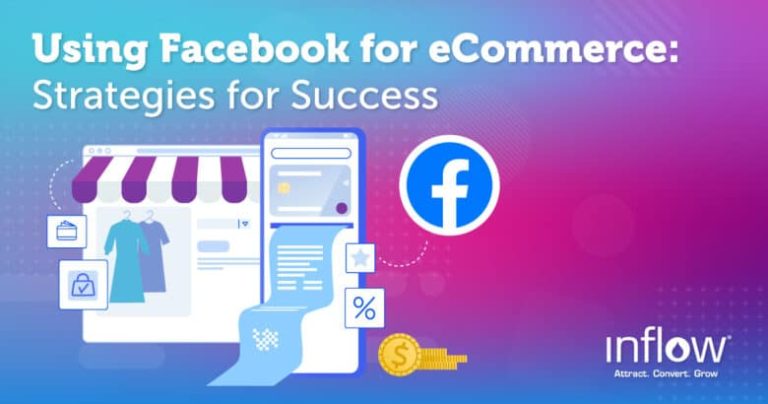Writing reviews for your blog or website has been a proven marketing strategy for decades. While this method is still an exceptional way to earn income or affiliate commissions, it (like many other marketing techniques) has been abused by unscrupulous marketers over time.
A few years ago, Google decided to take action to control reviews that didn’t provide an accurate or fair description of the product or service being written about. Many bloggers and affiliates never batted an eye and kept producing reviews that were slanted or downright deceptive.
Now that the most powerful search engine has moved forward with yet another update to its Google Review Policy Guidelines, marketers are beginning to take notice.
Before you create another review, make sure you understand what Google is looking for.
What Does Google’s Review Policy Say?
Originally introduced in April 2021, Google’s review guidelines highlight several important factors that they believe work together to create fair, unbiased reviews with in-depth, useful information that shoppers can use.
Because Google had received feedback from shoppers about the thin content in many reviews, it decided to reward reviews that offered more objectivity and options.
Here’s what Google includes in their review policy:
- Evaluate the product from a user’s perspective.
- Demonstrate that you are knowledgeable about the products reviewed – show you are an expert.
- Provide evidence such as visuals, audio, or other links of your own experience with the product, to support your expertise and reinforce the authenticity of your review.
- Share quantitative measurements about how a product measures up in various categories of performance.
- Explain what sets a product apart from its competitors.
- Cover comparable products to consider, or explain which products might be best for certain uses or circumstances.
- Discuss the benefits and drawbacks of a particular product, based on your own original research.
- Describe how a product has evolved from previous models or releases to provide improvements, address issues, or otherwise help users in making a purchase decision.
- Identify key decision-making factors for the product’s category and how the product performs in those areas (for example, a car review might determine that fuel economy, safety, and handling are key decision-making factors and rate performance in those areas).
- Describe key choices in how a product has been designed and their effect on the users beyond what the manufacturer says.
- Include links to other useful resources (your own or from other sites) to help a reader make a decision.
- Consider including links to multiple sellers to give the reader the option to purchase from their merchant of choice.
- When recommending a product as the best overall or the best for a certain purpose, include why you consider that product the best, with first-hand supporting evidence.
- Ensure there is enough useful content in your ranked lists for them to stand on their own, even if you choose to write separate in-depth single product reviews for each recommended product.
Google introduced these two new best practices for product reviews in December 2021:
- Provide evidence such as visuals, audio, or other links of your own experience with the product, to support your expertise and reinforce the authenticity of your review.
- Consider including links to multiple sellers to give the reader the option to purchase from their merchant of choice, if it makes sense for your site.
But the retail, ecommerce and affiliate world stood up and took notice when Google just recently rolled out an algorithm update that included the review guidelines.
Will My Reviews Be Punished if I Don’t Follow Google’s Review Policy?
Not really. Google states that reviews that follow their guidelines will be rewarded with higher rankings.
So, your review pages that don’t follow the Google review policy won’t be demoted in the rankings, but other reviews will be promoted above you. So, you essentially get the same results… lower positions for those pages that do not adhere to Google’s review guidelines.
How Can Affiliates Write Unbiased Reviews & Still Earn Commissions?
Google also offers advice/direction on affiliate sales in general.
/* .tcb-flex-col{padding-left:0px;}[data-css=”tve-u-2360254d1047b15″]{width:100%;float:none;margin:0px auto !important;padding-right:0px !important;padding-top:25px !important;padding-left:10px !important;}[data-css=”tve-u-160254d1047ae3″]{padding:20px 20px 0px !important;margin-bottom:20px !important;}[data-css=”tve-u-1660254d1047af7″]{font-size:15px !important;}[data-css=”tve-u-1060254d1047aed”]{color:rgb(222,114,114) !important;font-family:”Open Sans” !important;font-weight:400 !important;}[data-css=”tve-u-1060254d1047aed”] strong{font-weight:700 !important;}:not(#tve) [data-css=”tve-u-960254d1047aec”]{font-weight:var(–g-bold-weight,bold)!important;line-height:1.15em !important;font-size:26px !important;}}@media (max-width:767px){[data-css=”tve-u-2260254d1047b14″]{text-align:center;background-image:none !important;}[data-css=”tve-u-060254d1047ae0″]{background-image:none !important;}[data-css=”tve-u-260254d1047ae5″]{background-image:none !important;}[data-css=”tve-u-560254d1047ae8″]{padding-top:0px !important;}[data-css=”tve-u-460254d1047ae7″]{background-image:none !important;margin-bottom:0px !important;}[data-css=”tve-u-760254d1047aea”]{background-image:none !important;}[data-css=”tve-u-160254d1047ae3″]{padding-bottom:20px !important;margin-bottom:0px !important;padding-left:10px !important;padding-right:10px !important;}[data-css=”tve-u-860254d1047aeb”]{padding:10px 0px !important;background-image:none !important;}[data-css=”tve-u-2360254d1047b15″]{width:120px;margin-left:auto !important;margin-right:auto !important;margin-bottom:10px !important;}}
/*]]>*/
/**/
Blog Post Shortcuts Inspire & Empower You To Write Unique Blog Posts… Fast
My Best-Kept Blogging Secret Can Cut Your Writing Time In Half. Each Blog Post Shortcut Includes:
- A Customizable Type Of Blog Post And How To Make It Work For You
- Quick Research Resources
- Blog Post Title Suggestions
- Opening Paragraph Tips
- How To Write The Body Of The Post
- Call-To-Action Ideas
- Monetization Ideas
- Search Optimization Recommendations

I understand that I will also receive weekly articles & videos plus periodic discounts, product notices & more. I can unsubscribe at any time.
The main reasons Google doesn’t care too much for affiliate programs is that they promote slanted opinions. The affiliate wants to earn a commission, so s/he will naturally position the affiliate product in the best light possible.
Google warns against:
- Pages with product affiliate links on which the product descriptions and reviews are copied directly from the original merchant without any original content or added value. (This is also referred to as canned or swipe content. Don’t use it as-is. Only use it as a foundation to create your own copy.)
Afterall, who wants to read the exact same copy on every site the click to from Google? How helpful is that? Not!
- The majority of the site is made for affiliation and contains a limited amount of original content or added value for users.
What can you do instead? Google says:
- Make swipe/canned content only a minor part of your site/page/post.
- Ask yourself why a user would want to visit your site first rather than visiting the original merchant directly. Make sure your site adds substantial value beyond simply republishing content available from the original merchant.
- When selecting an affiliate program, choose a product category appropriate for your intended audience. The more targeted the affiliate program is to your site’s content, the more value it will add and the more likely you will be to rank better in Google search results and make money from the program. For example, a well-maintained site about hiking in the Alps could consider an affiliate partnership with a supplier who sells hiking books rather than office supplies.
- Use your website to build community among your users. This will help build a loyal readership, and can also create a source of information on the subject you are writing about. For example, discussion forums, user reviews, and blogs all offer unique content and provide value to users.
- Keep your content updated and relevant. Fresh, on-topic information increases the likelihood that your content will be crawled by Googlebot and clicked on by users.
As an affiliate, I get it. You want to earn a commission and you don’t want to put down any products that you are an affiliate for.
What can you do to be fair and unbiased without losing sales? Try this:
- Create single-product reviews that allow you to focus on the benefits and drawbacks of the item instead of only the positives. Nothing is perfect. There will always be something you don’t care for.
- Compare two products and offer options instead of reviewing individual products.
- Create case studies where you explain your (or other customers’) problems, experience and use of the product. A real-life look instead of one person’s opinion.
My Blog Post Shortcuts Reviews 3-Pack can walk you how to create these three types of posts.
With a few tweaks in your approach, you can continue to create review pages or posts that Google will love and your customers will respect.






